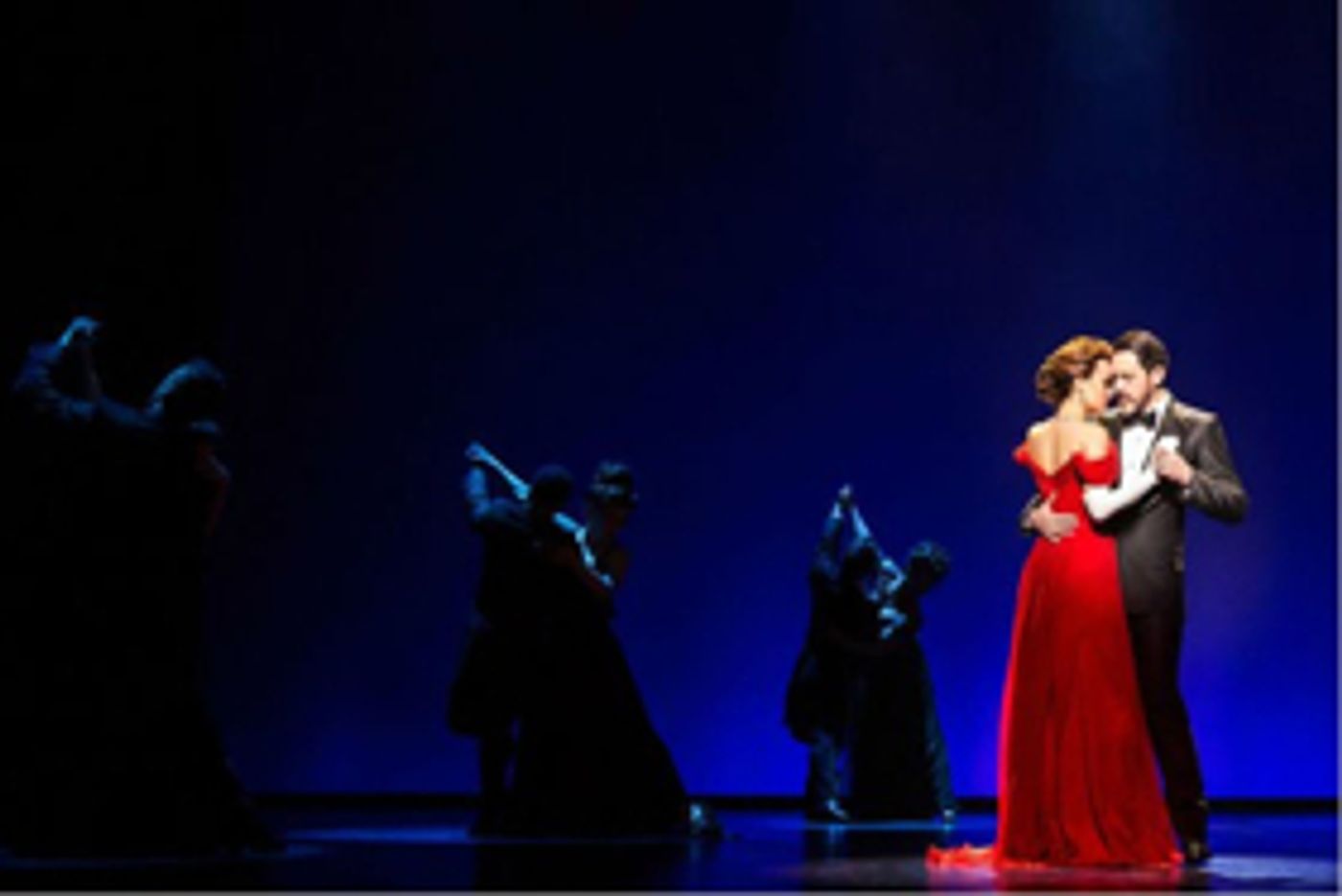Review: PRETTY WOMAN in Need of a Few Tweaks

One of the highest-grossing romantic comedies of all time, it was a forgone conclusion that Pretty Woman would add ": The Musical" to its title at some point.
The pre-Broadway tryout of the show runs through April 15 at the Oriental Theater and -as it stands-is a serviceable show. This modern take on both "Pygmalion" and "Cinderella" is romantic, charming and funny in places, but much work will need to be done if the show hopes for something other than a Broadway one-night stand.
The fault does not lie with the casting. Samantha Barks (Éponine in the film version of "Les Miserables") is making her Broadway debut as Vivian Ward, the hooker with the heart of gold played in the film by Julia Roberts. She is radiant and likeable in the role and can belt out the score with an emotional intensity. This could be her breakout Broadway moment much like the film was for Roberts' career.
She also shares chemistry with her leading man, Tony Award-winner Steve Kazee (as Edward, the Richard Geer role). His character arc is written a bit less intense than in the film (Gere's character was a bit more of a jerk at the start of things). He's successful in business as corporate raider, but stumbling through life without any clear path until he literally asks Vivian for directions.
His voice is well-suited for the score as he possesses a raspy, vocally quality very similar to Bryan Adams (who, wrote the lyrics and music with his long-time collaborator Jim Vallance). In the first act, he's given a decent song called "Freedom," that should be re-written to better reflect the uncertainty of where he is going (as it stands now, it is a bit unclear what he wishes to be freed from).
Eric Anderson, last seen on Broadway in "Waitress" turns in a Tony-worthy best supporting actor performance as both Happy Man who gleefully hands out maps to the stars and sings about the dreams that keep Hollywood and Los Angeles going ("Welcome to Hollywood") and the more buttoned down hotel manager Mr. Thompson. His transformation from one character to the next is a recurring theme in the show and it illuminates the fact that a few different circumstances separate a panhandler from a hotel manager (or a Pretty Woman from a call girl).
As Vivian's best friend Kit, Orfeh has a little bit less to do than Anderson and her character isn't too much of a stretch from Paulette, the lower middle class hairdresser she played in "Legally Blonde: The Musical" (which was also directed and choreographed by Jerry Mitchell). She is brash, but protective of Vivian. In songs like "Never Give Up On a Dream," she is able to unleash her impressive voice.
Tommy Bracco earns some much needed laughs as bellhop Giulio. There is a sparkle to his performance in his scenes with Anderson and Barks.
Jerry Mitchell again does double duty as director and choreographer. He excels at energetic group numbers, but the show also features a touching slow dance by the two leads. Another highlight is a scene in which Anderson's hotel manager teaches Barks' Vivian to tango.
Adams and Vallance's lyrics could stand to be tweaked here and there. A character will state something as a line of dialogue and then proceed to sing nearly the exact same thing. It's fine to use this if you are trying to convey something important to a character or to the plot, but not to the extent in which it is currently used in the show. Things seldom need to be said or sung twice.
A bigger issue is really the book (written by the screenwriters of the film, J.F. Lawton and the late Garry Marshall). There is the beginnings of a romantic musical here, but only if the show somehow manages to free itself from the shackles of faithfully recreating the iconic movie moments. When you see Vivian emerge wearing that red dress and white gloves (Gregg Barnes is credited with the costume designs for the show), you know the necklace scene is due. She reaches for the diamond necklace, Edward snaps the lid close and she laughs. The moment arrives with such anticipation, it feels stilted and not the least bit organic to the moment.
Perhaps the worst travesty is the scene in which a newly-transformed Vivian returns to a snooty Rodeo Drive shop that previously refused to help her. Dutifully recreated at the end of act one, it literally sucks the air out of the show. The song preceding it, "You're Beautiful" is a decent enough song to close out the act. It builds to a climax with a big reveal of Vivian emerging from a dressing room looking completely elegant. It is Vivian's "Cinderella" moment. Cinderella didn't stop mid-stair, turn around, chastise her step sisters. The song should continue to build and crescendo to the end of the act.
Instead, we get an "I'll be right back" interlude so that said iconic scene can be inserted. You can't hit pause on a crescendo and directory Jerry Mitchell fumbles to rebuild the excitement from there.
A subsequent scene at the opera, in which Vivian is swept up in the raw, emotional intensity of "La Traviata" as Edward becomes even more enamored of her, is by far the best scene in the show. Adams and Vallance have written a lovely power ballad for Kazee ("You and I") and, for a brief moment, the show seems to find both its own voice and identity. The show needs more of that if it hopes to succeed on Broadway.
PRETTY WOMAN: THE MUSICAL runs through April 15 at the Oriental Theatre, 24 W. Randolph. Tickets $33-$125. (800) 775-2000. www.broadwayinchicago.com
Reader Reviews
Powered by
|
Videos

